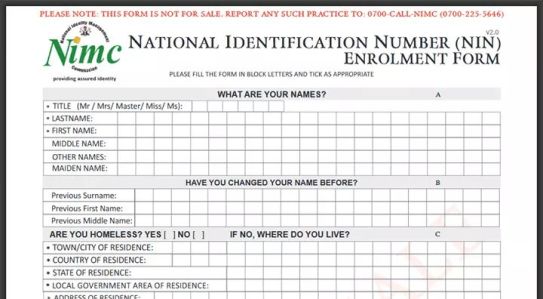Nigerians, foreign nationals and corporate organisations who access National Identity Number (NIN) data unlawfully, refuse to give information or give false information during NIN registration are likely to face between three to 10 years in jail or N10 million ($25,000) fine.
These penalties are contained in the Section 28 of the National Identity Management and Commission (NIMC) Act 2007 that provides for the establishment of the National Identity Database.
Also, the Act stipulates that carrying out voters’ registration, issuing land permits, purchase of insurance policies, payment of taxes, issuance of passport or opening of bank accounts, among others, without NIN is an offence.
These offences, according to the Act, attracts N50,000 or six months jail term or both for individuals and N1million for corporate organisations.
However, analysts at PricewaterhouseCoopers noted that the Act did not specify penalties for authorised persons who misuse information on the NIN database.
The analysts led by Esiri Agbeyi and Yemi Jimoh at PwC stated that this offence is an important issue that requires urgent consideration by the government to prevent abuse.
They, however, urged assignees and their wards who fall under the category of registrable persons to take steps to go for the NIN registration.
READ ALSO: Updated: Military Aircraft Crashes, Six Dead
According to them, the NIN will ensure there is ease of residence permit renewal for expatriates whenever it is required.
They urged organisations to encourage and support their employees to obtain their NINs as failure to reflect NIN on mandatory transactions such as tax payments could be considered as a violation of the Act.
They urged the Federal Government to consider temporary SIM cards for business travellers who are not registrable under the NIMC Act.
“Countries like the UAE, Rwanda, UK and the US allow the purchase of flexible OTC SIM bundles for temporary use without registering for a national identity or social security number. Given the nature of information to be stored on the database, there should be a robust framework to guarantee privacy, data security and guard against identity theft or other fraudulent misuse of the information collected,” they added.
According to them, there should be stiff penalties and prosecution in the Act to forestall misuse of the data by those with authorised access.













